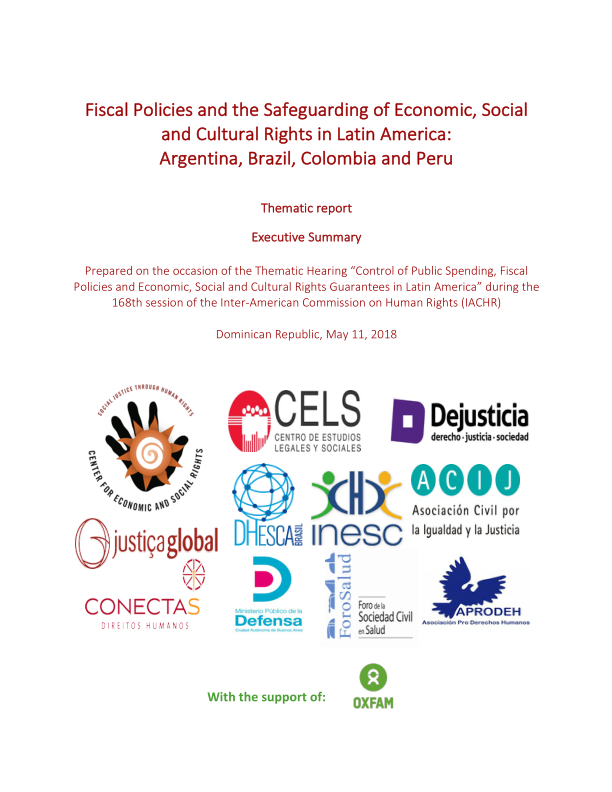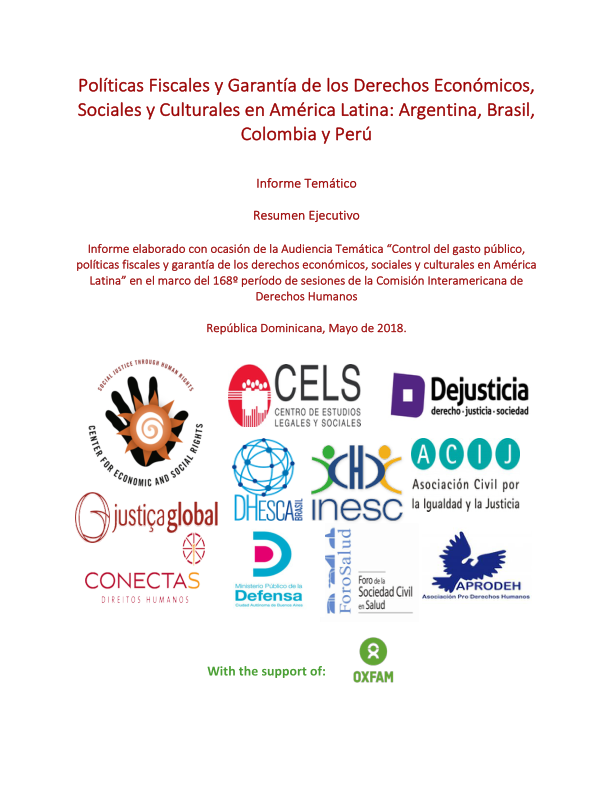This executive summary and report was prepared on the occasion of the Thematic Hearing on “Control of Public Spending, Fiscal Policies and Economic, Social and Cultural Rights Guarantees in Latin America” during the 168th session of the Inter-American Commission on Human Rights (IACHR) in the Dominican Republic on May 11, 2018.
CESR and its partners in the region are holding this thematic hearing to highlight a fundamental concern: that the majority of Latin American countries have not yet taken advantage of the enormous transformative potential of fiscal policy in the fight against poverty, inequality and the structural underpinnings of human rights violations.
This coalition of twelve leading human rights and development organizations working at the local, national, regional and global levels (listed below) has convened the second-ever thematic hearing on the impact of fiscal policy in Latin America at the IACHR this week. This time the focus is on four particular situations of human rights abuses stemming from tax and fiscal policies in Argentina, Brazil, Colombia and Peru. An accompanying joint report—“Fiscal Policies and the Safeguarding of Economic, Social and Cultural Rights in Latin America: Argentina, Brazil, Colombia and Peru”—demonstrates the transformative role fiscal policy can and must play in achieving the Sustainable Development Goals (SDG) and overcoming the historic human rights deficits facing Latin America today .
The thematic report offers concrete evidence from Argentina, Brazil, Colombia and Peru to show how central fiscal policies are to the enjoyment of human rights, especially by those most socially and economically excluded. It highlights the impacts of unprecedented austerity measures in Brazil, the urgent need for tax reforms to implement the Peace Agreement in Colombia, and the role of regressive fiscal policies in perpetuating inequalities in access to education, health, housing and social security in Peru and Argentina.
The study presents a compelling case for aligning fiscal policy with human rights principles in order to ensure the sufficient, equitable, sustainable and accountable provision of public resources to realize human rights.

